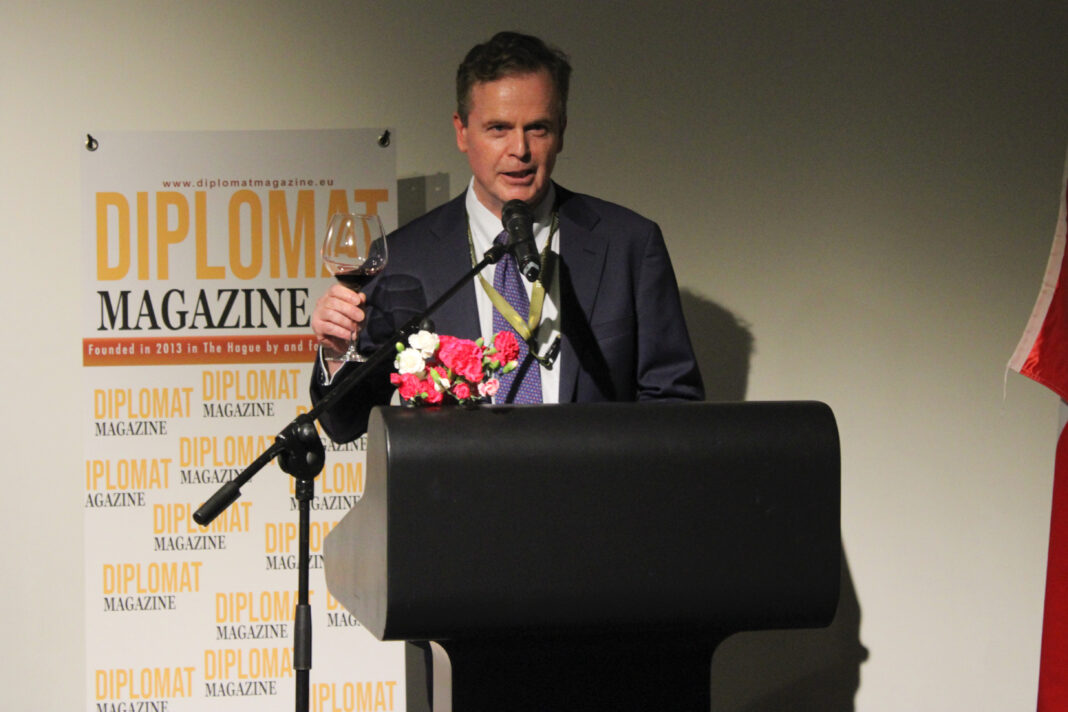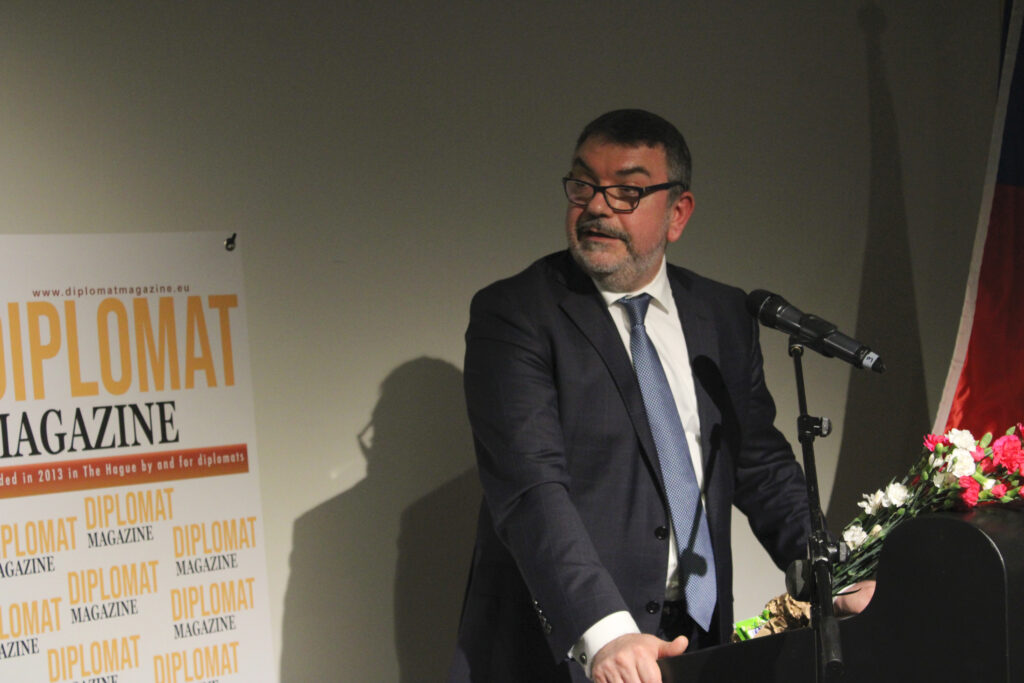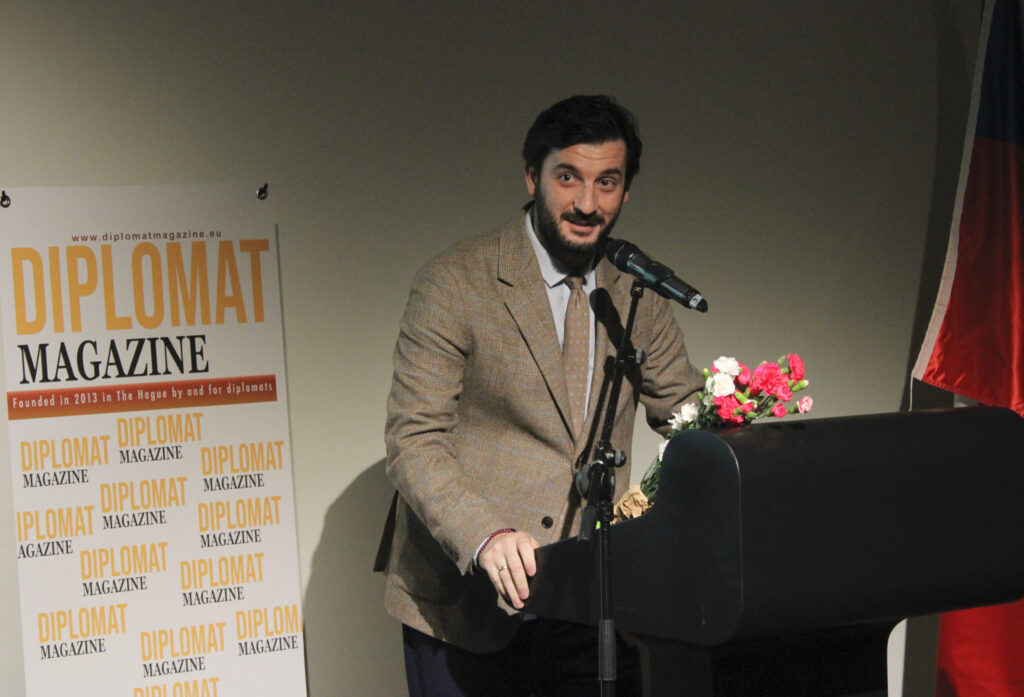By Roy Lie Atjam
An exclusive wine and spirit experience, Embassies promoted their wine and spirits, exposing their silver tastevin utensils to attract the Dutch market and friends at the fourth edition of Diplomats Wine Extravaganza.
Dr. Mayelinne De Lara, Diplomat Magazine’s Publisher joined by Thomas Kortleve, General Manager of Leonardo Royal Hotel welcome the guests to the Fourth Diplomat Wine Extravaganza on 30 October 2023. It was tasting, walking, wine talk by enologists, experts and enjoying jazz music. The event featured wine tastings, conversations with enologists, experts and jazz music.
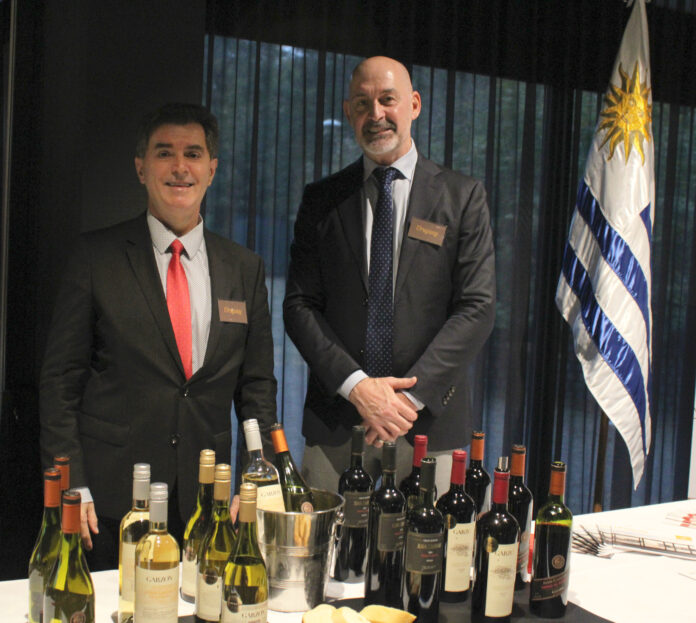
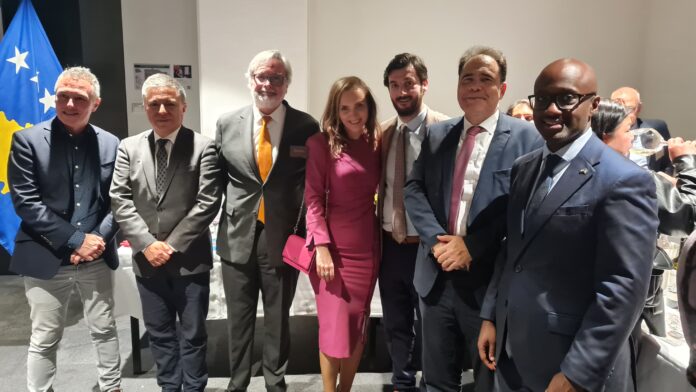
In her welcome remarks De Lara stated “today, we are here to celebrate the rich diversity of wine and spirits from around the world. Each country has brought its finest products, and we have extended invitations to importers, sommeliers, chefs, journalists, diplomats, wine lovers and friends to join us in this extraordinary journey of taste”
Mayelinne De Lara continued, Diplomat Magazine, founded a decade ago by diplomats with the mission to support the work of each embassy, and Diplomats Wine Extravaganza, in particular, has proven to be an instrumental force in advancing the wine industry of numerous countries.
Let’s give the floor to the distinguish figures of today, who have made this event possible, the ambassadors: Armenia, Australia, Bolivia, Chile, Dominican Republic, Ecuador, Peru, and Uruguay.
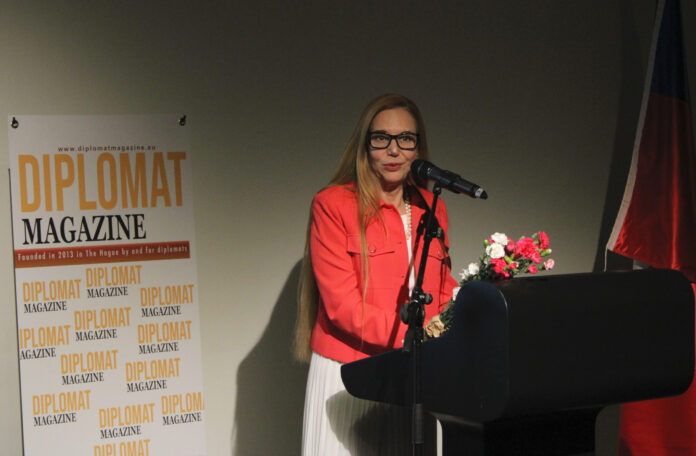
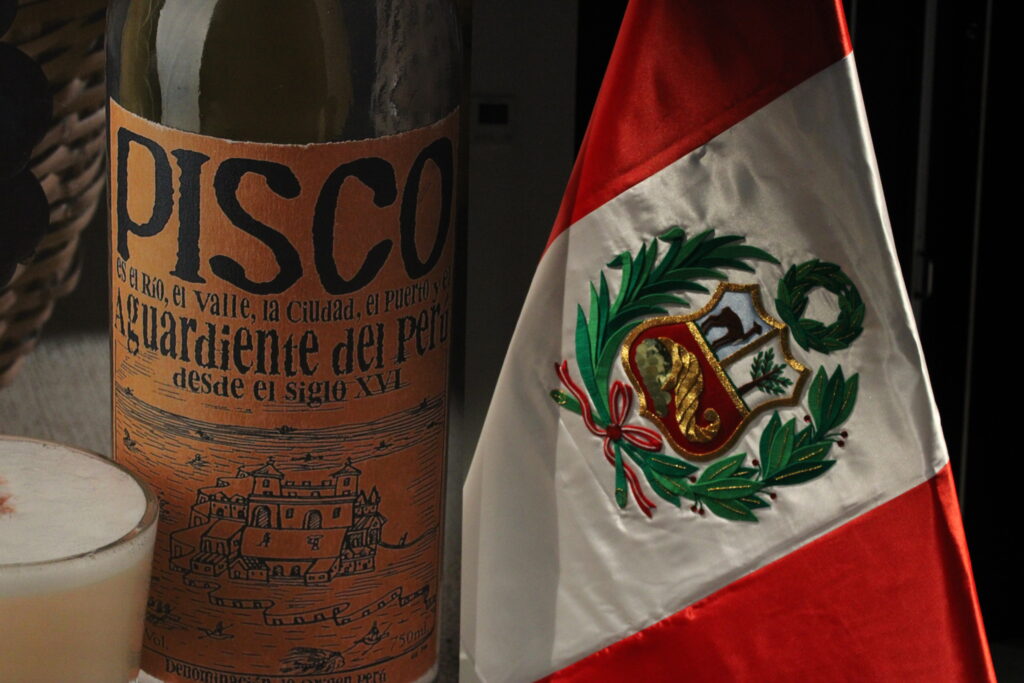
Armenia, alleged to be the world’s oldest wine producer, her Ambassador Mr Viktor Biyagov in part said the following, as a wine lover I am very glad to see so many people gathered here to celebrate the eternal beverage ever to be created, to get to know the history of winemaking in different countries and to get a taste of the culture of these countries through their wines.
The history of winemaking in Armenia dates back to more than 6100 years ago, when the first production of wine began in a cave near Areni village, in Vayots Dzor province of Armenia, which after thousands of years remains the main wine producing region in Armenia. Recent excavations and scientific research uncovered that the cave of Areni was an ancient ritual site where wine production played an integral part.
Laboratory research conducted by scientists of Oxford and California universities verify that in the face of Areni cave complex we deal with the world’s oldest and most complete wine production facility, with its wine press, large karases for fermentation and storage, as well as jars of around 6000 years.
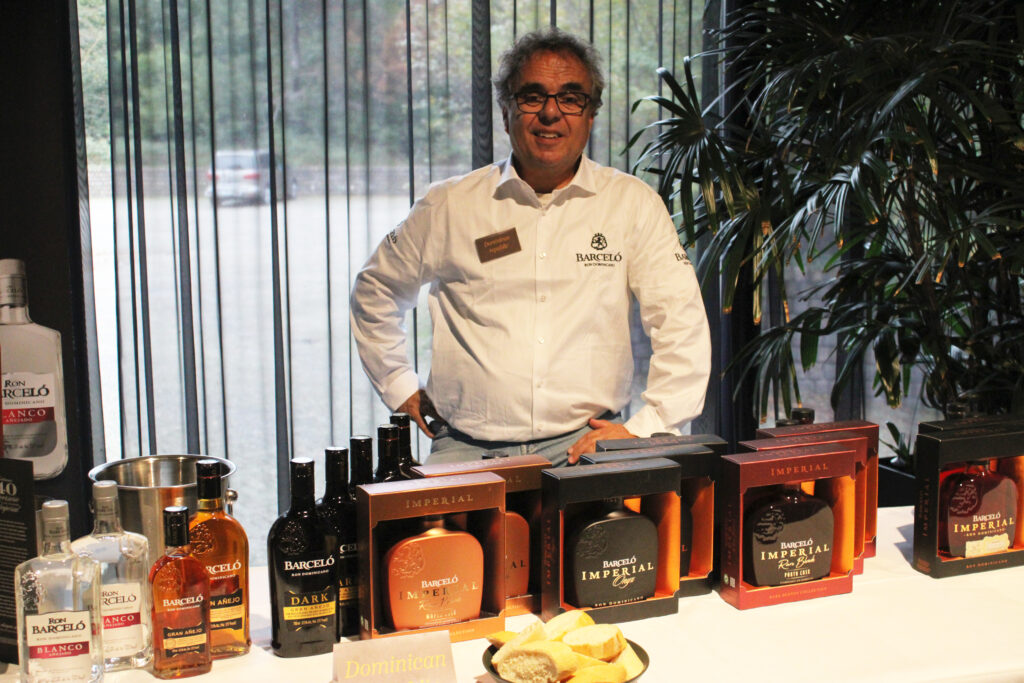
And today, millennia later from the very first try, wine production is amongst the biggest booming industries in Armenia, culminating with the annual wine fest, that every year attracts thousands of tourists from all over the world. This is definitely a must try experience in Armenia, which is a unique way to get to know the Armenian culture, rich history and everyday life, all through wine.
Wine is a way of life, a definition of love and the universal language of friendship that gets better with every passing year. It carries the wisdom of the old and the spirit of youth, and what’s most important, it brings people together.
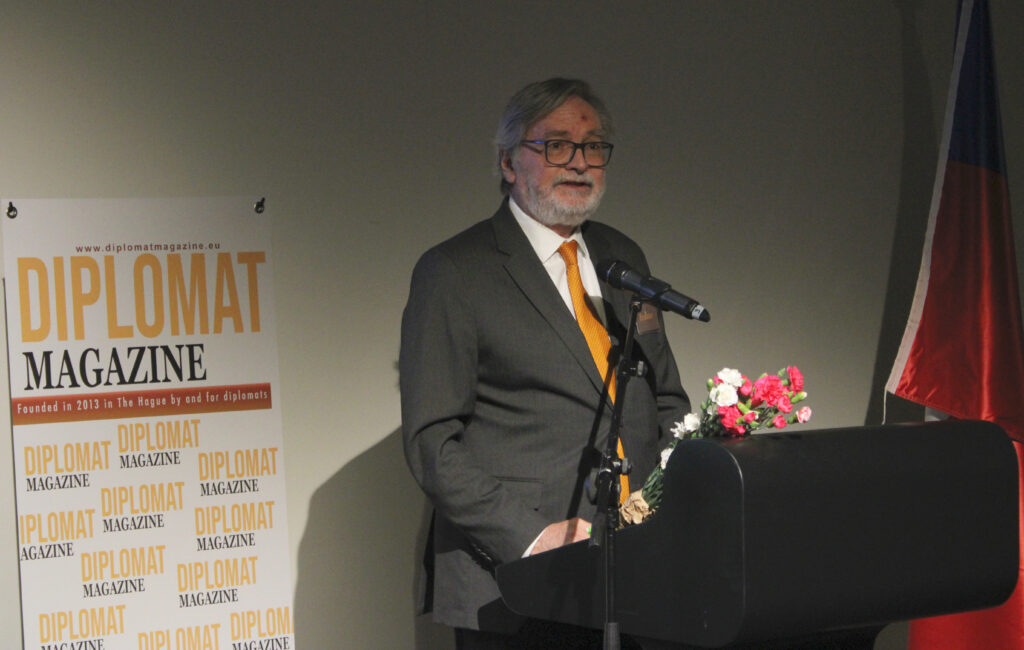
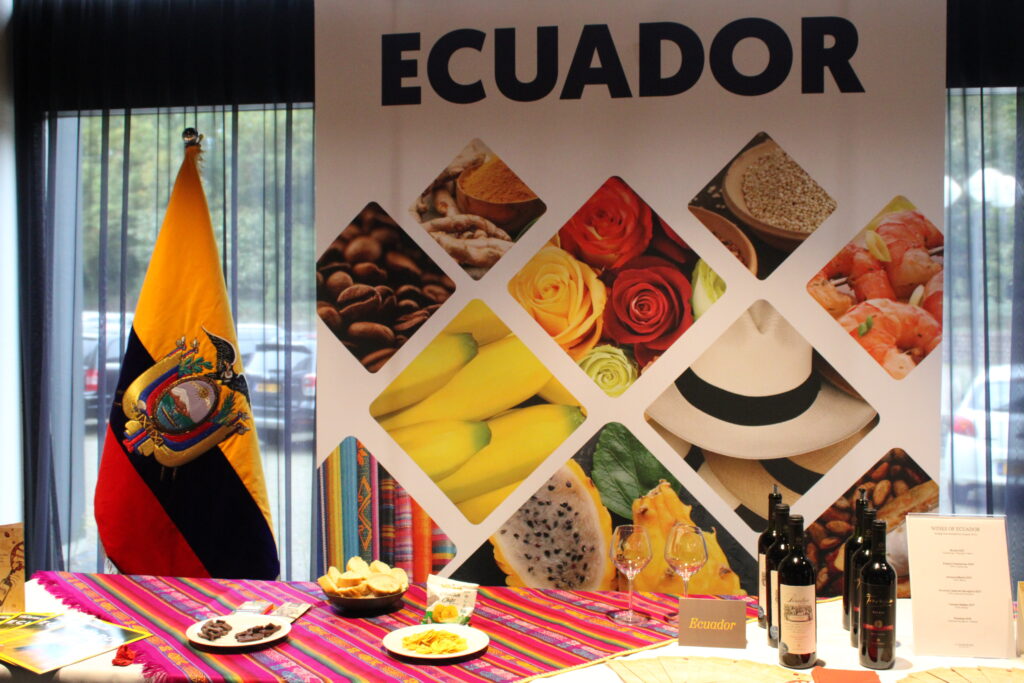
Today, among a number of gorgeous flavors, you will also taste the Armenian wines, which bear the warmth of our sun, the strength of our earth and the hard work of its producers.
Please help yourself to the best of Armenian wines, generously provided and exhibited by Royal Beverages Group and its General Director Artak Danielyan.
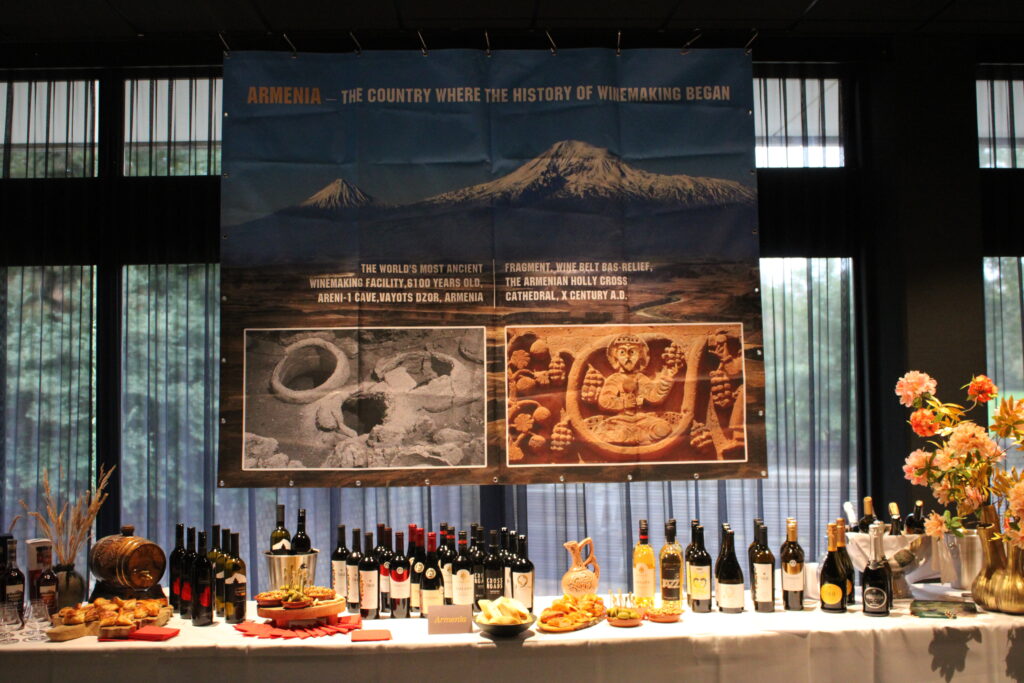
The Australian Ambassador Mr Greg French recounted an interesting Australian contribution to the global wine industry was Australia’s role as a refuge for grape varieties that were threatened in Europe and other parts of the world. This is because much of Australia remained unaffected by the devastating phylloxera parasite that swept through France and other parts of Europe in the late nineteenth century.
Australia thus became home to some of the world’s oldest producing vines, planted in the 1840’s. …. Another contribution has been the promotion of controlled temperature fermentation in stainless steel tanks.
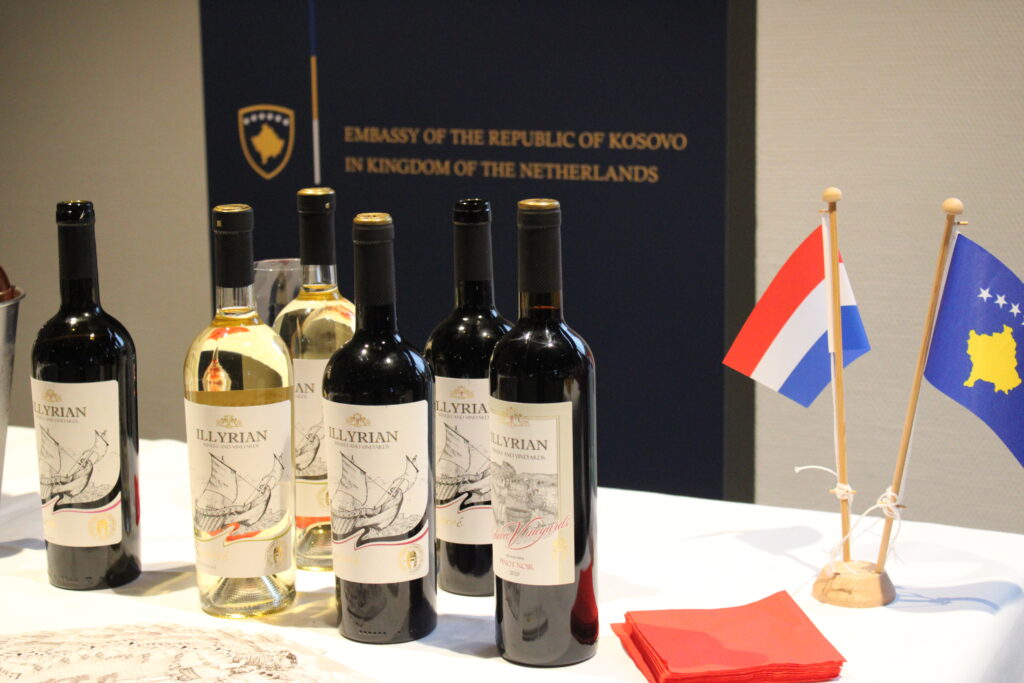
The Ambassador of Kosovo Mr Dren Doli introduced to the guests the very wide variety of red, white and rosé wines produced in Kosovo. In his speech, Ambassador Doli underlined how wine production is not only about the taste of wines, as it tells a lot about the culture and tradition of an entire population.
Mr. Haziz Tafaj and Mr. Bejtullah Haxhimurati are representatives from two of the most famous wineries in Kosovo. Both of them are members of the Enologjia, which is the Kosovo wine association in charge of promoting Kosovo wine in the country and abroad.
Mr.Tafaj represented the Theranda and SHE wines, both coming from the Theranda valley. The name SHE was created to celebrate all the women of Kosovo. Mr. Haxhimurati represented the ILLYRIAN winery and vineyards which are located in the west of the city of Rahovec, also known as the capital city of the viticulture in Kosovo dating back to the I century AD.
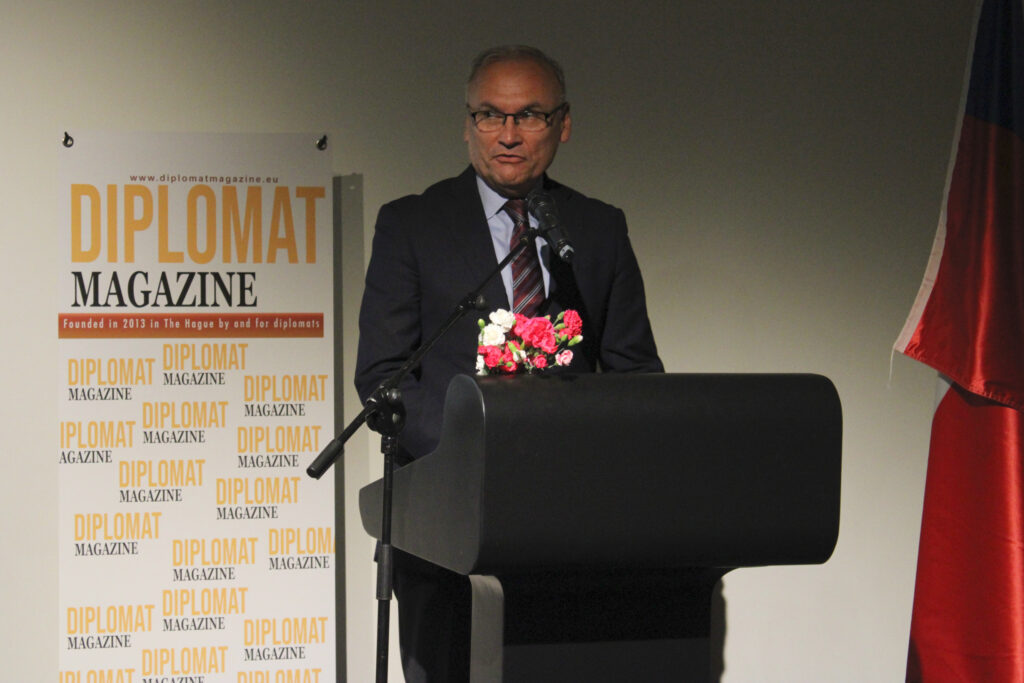
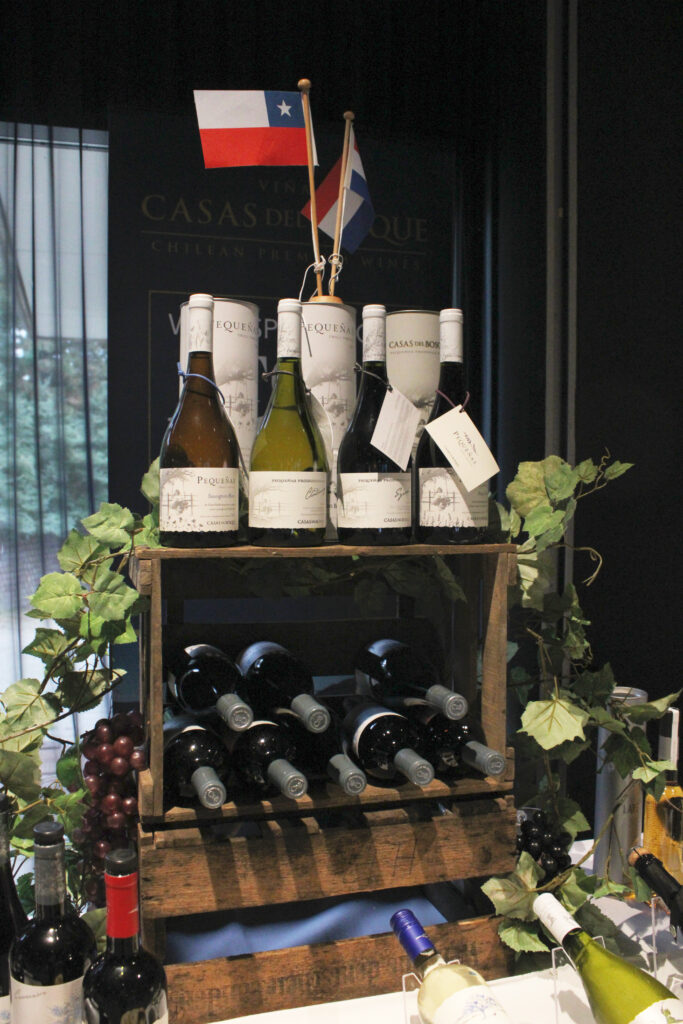
The fourth edition of Diplomat Wine Extravaganza has been vibrant and in an excellent atmosphere. A Burgundian motto: “Jamais en Vain Toujours en Vin”, Never in Vain, Always in wine.

Bolivia, though less renowned than its South American neighbors, boasts a rich colonial history of viticulture with unique small vineyards and wineries. The country’s high-altitude wine industry is remarkable, with about 75 percent devoted to red wine production, including varieties like Cabernet Sauvignon, Merlot, Syrah, Malbec, and Tannat. White grape varieties such as Torrontes, Chenin Blanc, and Riesling are also gaining attention.
Bolivia’s vineyards, many centuries old, are often situated between 1,600 and 3,000 meters (5,250-9,840 feet) above sea level, making it the highest wine-producing country in the world. The Central Valley of Tarija is home to 80 percent of the country’s vineyards, benefiting from a Mediterranean-like climate with strong winds that protect the grapes from over-ripening. The sunlight at high altitudes concentrates the flavors and aromas of the wines, while cooler nights provide balance and acidity.
While Bolivia’s wine industry remains small compared to giants like Chile and Argentina, it is gaining international recognition, having already won 40 medals in global competitions. The Ambassador of Bolivia, H.E. Roberto Calzadilla Sarmiento, emphasized, “We are not competing in quantity with the major producers in the region, but we are outstanding in quality.” Bolivia’s focus is now shifting toward exportation, marking a new era for its wine industry.
The country’s viticulture dates back to the 16th century when the Spanish introduced vines to produce sacramental wine. Today, Bolivia’s vineyards retain much of their traditional character, particularly in the Cinti Valley, and continue to offer wines with unique characteristics that are increasingly admired on the global stage.

